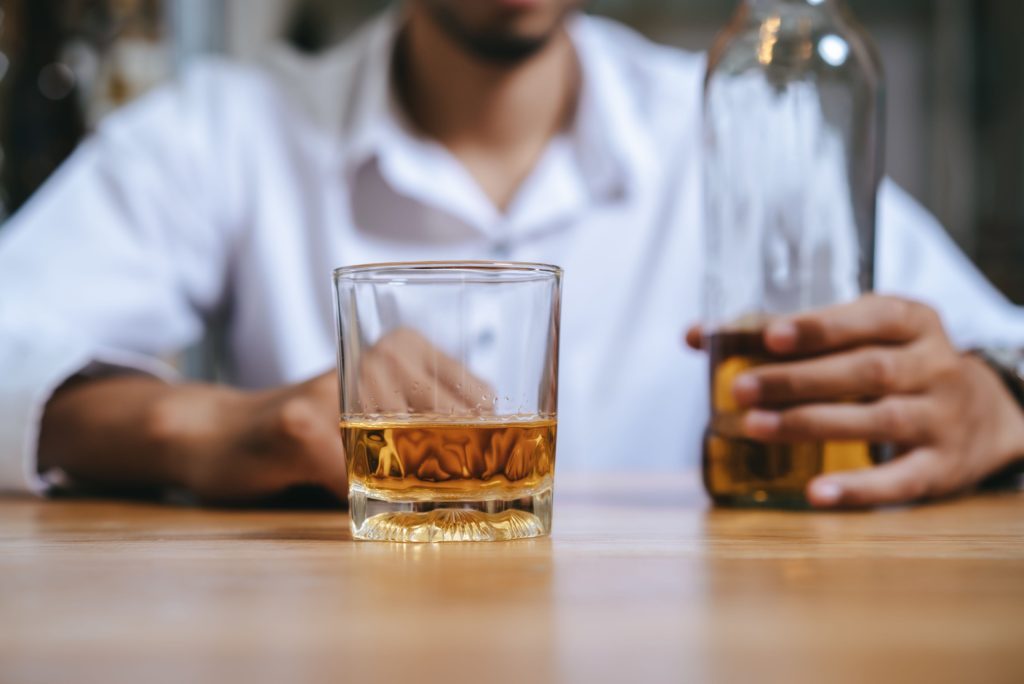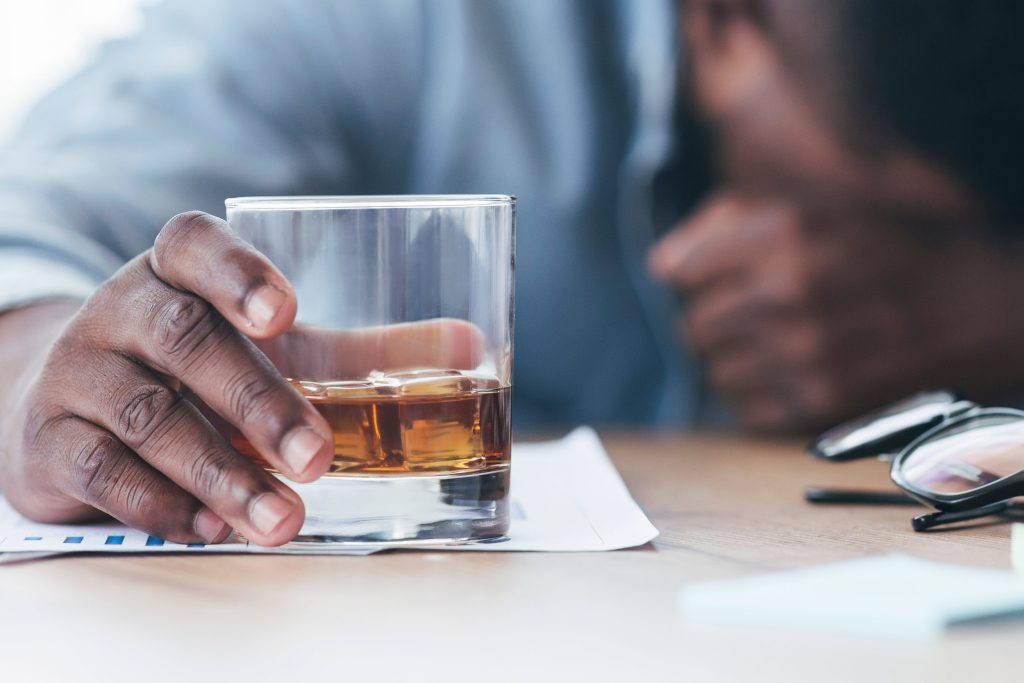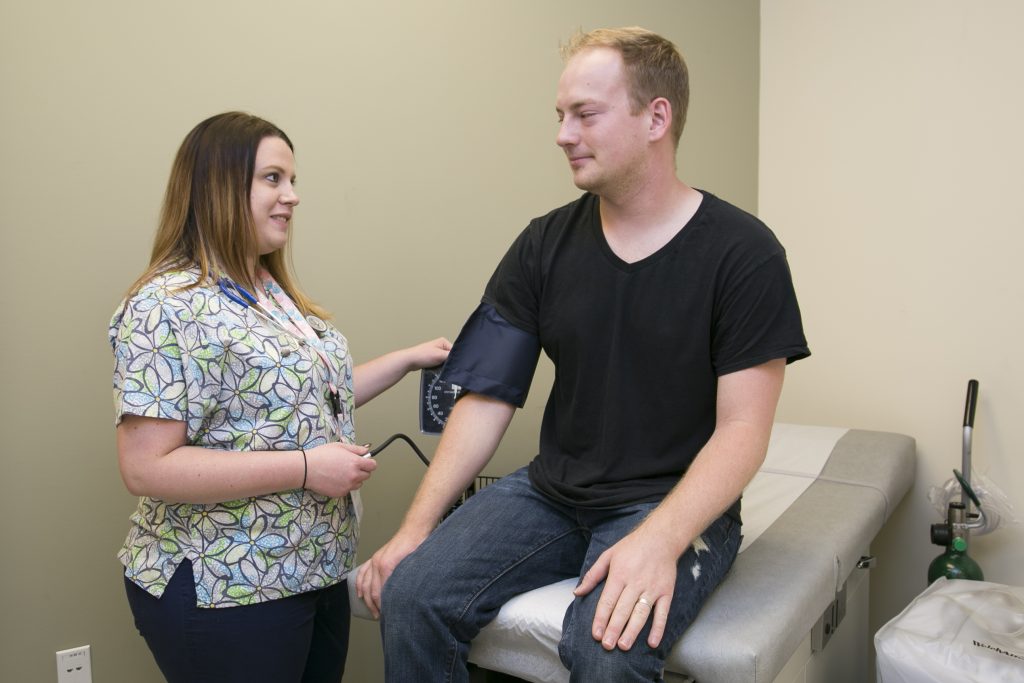How Alcohol Affects Blood Pressure
Written by Theresa Valenzky
& Medically Reviewed by Benjamin Caleb Williams, RN
Medically Reviewed
Up to Date
Updated 09/15/2023
Article at a Glance:
- High blood pressure occurs when the pressure of your blood on your arteries stays higher than it should.
- High blood pressure is undetectable without measuring it and can lead to serious health problems.
- Heavy alcohol use significantly increases the risk of high blood pressure and hypertension.
- People who have high blood pressure and drink will need to consider the relationship between the two when managing them.
- Alcohol addiction can cause high blood pressure, but it can be overcome.
Heavy alcohol use often causes chronically high blood pressure, also known as hypertension. Hypertension increases your risk of many health problems, including strokes, heart attacks and kidney problems.
If someone is worried about hypertension and alcohol use, they should get their blood pressure levels tested and talk to their doctor about how alcohol might be affecting their blood pressure. People who keep drinking despite having health problems may be struggling with alcohol use disorder and usually benefit from professional treatment options that can help them gain control over their drinking.
Looking for addiction treatment in Columbus, Ohio or the surrounding areas? We have inpatient and outpatient facilities nearby and across the country ready to help.
What Is High Blood Pressure?
To keep your blood circulating, your heart generates pressure that pushes blood through your arteries. Your arteries can also expand and contract to control this pressure. High blood pressure occurs when the pressure in your arteries is higher than it should be. Over time, this strain the walls of your arteries, causing microscopic damage. Damaged arteries lead to plaque buildup that can plug the artery, preventing blood flow to important parts of your body, such as your heart or brain.
Normal blood pressure is 120/80, with the higher number being the pressure while your heart is beating and the lower number being the pressure while your heart is at rest. High blood pressure is considered anything over 130/80, and hypertension is present when your blood pressure is high for a prolonged period.
High Blood Pressure Signs and Symptoms
One of the most dangerous things about high blood pressure is that it does not cause any signs or symptoms unless it is very extreme. This allows it to damage your arteries for years without being detected.
High blood pressure that causes symptoms is typically a medical emergency. The symptoms that someone with extremely high blood pressure may experience include headache and blurred vision. These are pretty generic symptoms; it is only by actually measuring your blood pressure that you can typically tell it is high.
How Alcohol Affects Blood Pressure
High blood pressure occurs when blood pushes too hard against the walls of the arteries as it flows through them. If left untreated, high blood pressure can lead to complications like aneurysms, eye problems, heart attacks and strokes.
The relationship between alcohol and blood pressure is complex. High blood pressure and alcohol use are linked — studies show that unhealthy lifestyle habits, including excessive drinking, are risk factors for developing hypertension.
Blood Pressure and Alcohol in Moderation
Over a decade ago, researchers believed that using small amounts of alcohol was beneficial for blood pressure. The link between moderate alcohol use and blood pressure drop has recently become more controversial. It now seems more likely , for example, that people who drink limited amounts of alcohol may also be more likely to engage in other healthy behaviors that lower their risk of hypertension. Additionally, alcohol use may affect people’s blood pressure differently based on their genetics, race and age. Anyone concerned about high blood pressure should cut back on their drinking and speak to their doctor about how alcohol use may be affecting their health.
Blood Pressure and Alcohol in Excess
Medical professionals know that there is a link between alcohol abuse and high blood pressure. In about 16% of people with hypertension, alcohol consumption is a contributing factor. People who drink heavily nearly always have high blood pressure, which can lead to other side effects, like fatty liver and heart disease. A person’s blood pressure usually drops once they stop misusing alcohol, but they may be at risk for hypertension again if they relapse and resume drinking. Going through a treatment program can help people learn to manage their alcohol use, to prevent more serious health problems from developing later on.
If you are struggling with alcohol addiction, we are here for you.
Alcohol Use and Blood Pressure Medications
Because alcohol can cause harmful interactions with different cardiovascular drugs, it’s usually not a good idea to combine alcohol and blood pressure medication. Sometimes, alcohol use can send blood pressure medication into overdrive, leading to dangerous blood pressure drops or adverse side effects. If someone isn’t sure whether they should combine alcohol with their blood pressure medication, they should speak to their doctor or pharmacist to obtain additional information.
*The information we provide is not intended to be a substitute for professional medical advice, diagnosis or treatment. Consult your doctor if you have any questions or concerns regarding your medications.
Managing Alcohol Consumption and Blood Pressure
Managing alcohol consumption and blood pressure can be a balancing act. The more heavily you drink, the higher your blood pressure will be, and vice versa. This leads to a complicated interrelationship between the two. For example, if you take blood pressure medicine and cut back on your alcohol use, you might also eventually need to cut back on your blood pressure medication.
Track Your Alcohol Intake
When managing your alcohol consumption and blood pressure together, it is very important to keep track of everything. Tracking your alcohol intake will help you to understand if your drinking has changed and if you should expect any changes in your blood pressure. Many people underestimate their alcohol use, making it important to measure and keep track of your daily alcohol intake accurately.
Help Your Body Recover After Drinking
Your blood pressure actually dips right after drinking, then elevates several hours afterward. This effect is caused by alcohol, and there is nothing that you can do to change how alcohol itself impacts your blood pressure. While you can’t do anything specific to help your blood pressure recover after drinking, maintaining a healthy lifestyle in other areas by exercising and making healthy food choices could help promote better blood pressure.
Monitor Your Blood Pressure
Just like you need to track your alcohol intake, you also need to track your blood pressure. The only way to know how your blood pressure is doing is to measure it daily. This helps you understand how alcohol affects your blood pressure and if any interventions are helping.
Adapt Your Lifestyle to Support Healthier Blood Pressure
Blood pressure problems are often preventable. Eating a healthy diet, exercising and drinking only in moderation can all help support healthy blood pressure. One often-unrecognized factor that affects your blood pressure is sleep apnea, a problem that affects your breathing while you sleep. Maintaining a healthier lifestyle and getting tested for sleep apnea can go a long way to promoting healthier blood pressure.
Can I Drink Alcohol To Help Regulate My Blood Pressure?
While moderate drinking may not be harmful, you should never use alcohol to regulate your blood pressure. No good evidence supports that this is likely to be beneficial. Alcohol consumption guidelines define moderate drinking as one drink per day for women and two for men. Drinking moderate amounts of alcohol or less is not likely to cause serious, long-term problems with your blood pressure.. However, moderate drinking can eventually lead to heavy alcohol use and addiction.
Does red wine lower blood pressure? Red wine contains nutrients called polyphenols. These are also found in chocolate, berries, beans and nuts. Polyphenols may help with health issues related to digestion, heart problems and diabetes, and eating them may reduce people’s risk of hypertension.
Anyone who is worried about hypertension and has trouble limiting their drinking to moderate levels can talk to a substance abuse counselor to help determine if their drinking has developed into alcohol misuse. Rehab facilities can help people develop the tools they need to live a sober, healthy lifestyle.
Alcohol Detox and Treatment
Detox is the process of a substance being metabolized and removed from the body. Alcohol detox may cause mild to severe symptoms, depending on how long a person used alcohol and how much they tended to drink.
It is safest to undergo alcohol withdrawal treatment at a medical detox facility. When someone stops using alcohol after drinking for a long time, they are at risk of extreme side effects, such as a heart attack or stroke. Medical professionals can help facilitate medical detox by monitoring people’s symptoms and providing medication or life support if any medical complications arise. The alcohol detox timeline typically begins with withdrawal symptoms eight hours after use is discontinued, peaking at 24–72 hours and subsiding in five to seven days.
At The Recovery Village Columbus, we are here to help you overcome alcohol and live an addiction-free life. Contact us today to learn how you can start your journey to lasting recovery!
We offer a safe, comfortable detox experience.
Top Reads About Alcohol Addiction

How Long Does Alcohol Stay In your System?
The time it takes for alcohol to have an effect depends on a variety of factors and will be… Read More

Alcohol Addiction Treatment in Ohio
If you can’t seem to stop drinking, you’re not alone. Let our experts help you heal… Read More

Am I an Alcoholic?
Knowing the signs of alcohol addiction can help you identify whether you or a loved one may be at… Read More

Does Alcohol Affect the Kidneys?
Alcohol causes dehydration, which decreases blood flow to the kidneys and makes it more difficult… Read More

Understanding Alcoholism and Finding Resources for Alcohol Addiction
This resource guide is an overview of the information currently available on alcohol use and abuse… Read More
View Sources
Centers for Disease Control and Prevention. “Fact Sheets — Moderate Drinking.” October 18, 2016. Accessed August 29, 2019.
Loyke, Hubert F. “Five Phases of Blood Pressure in Alcoholics.” The Journal of Clinical Hypertension, June 10, 2013. Accessed August 23, 2019.
Miranda, Andreia Machado, et al. “Association between Polyphenol Intake an[…]ased Study in Brazil.” PLoS One, October 28, 2016. Accessed August 29, 2019.
National Heart, Lung and Blood Institute. “High Blood Pressure.” Accessed August 29, 2019.
National Institute on Alcohol Abuse and Alcoholism. “Harmful Interactions.” 2014. Accessed August 29, 2019.
Spaak, Jonas, et al. “Dose-related effects of red wine and alc[…]nd arterial diameter.” American Journal of Physiology-Heart and Circulatory Physiology, February 1, 2008. Accessed August 29, 2019.
Authorship


